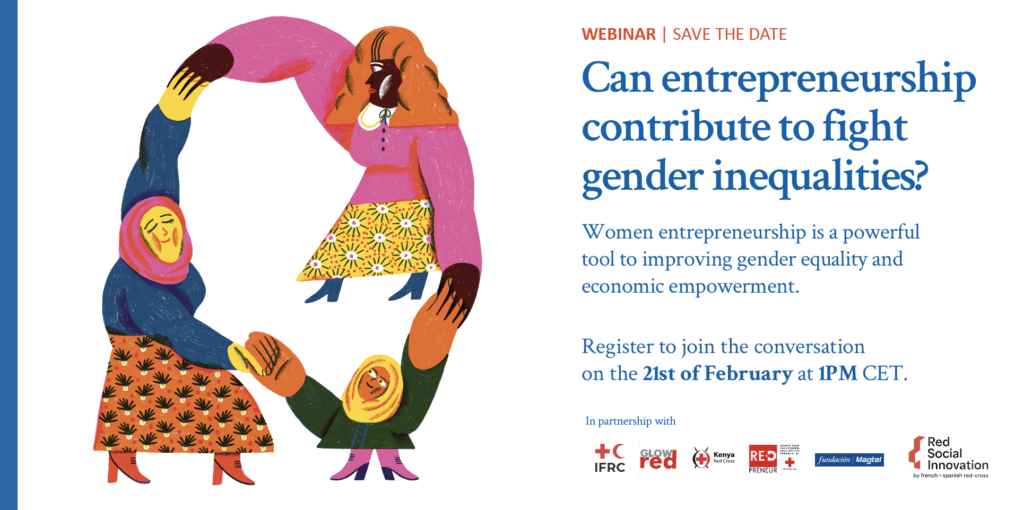
Women entrepreneurship is one way of improving gender equality as it participates in improving women’s economic empowerment. Around the world, it represents a large proportion of women’s paid work and certainly holds strong potential for spurring economic opportunity and job creation (ILO, Women’s Entrepreneurship Development Programme).
Yet, most studies find that women run smaller businesses than men in terms of sales, assets and number of employees and choose to operate in traditional female-dominated areas, which are less profitable than male-dominated sectors. Women’s businesses are also more often located in their homes as women entrepreneurs often ask for more flexibility, in order to combine child care, family life and business work. Besides, in many developing countries there still exists a gender gap in education – especially at the secondary level – which influences women entrepreneurs’ ability to grow their business (Female Entrepreneurs: How and Why Are They Different? World Bank).
Across the International Movement of the Red Cross and Red Crescent, some National Societies paved the way for entrepreneurship support programs in order to improve the resilience of vulnerable communities – and women entrepreneurs more specifically.
Following a global meeting at 21 – the social innovation accelerator of the French Red Cross – in Paris in January 2020, the Kenya Red Cross Society and the French Red Cross started a dialogue to build a common social entrepreneurship program. Two years later, the Women Social Entrepreneurship Institute was launched in Mombasa, Kenya, with the support of the French Minister of Foreign Affairs and Europe. The objective: support informal women entrepreneurs transitioning to business leaders in their communities. Through a 8-month incubation program, 25 women entrepreneurs had the opportunity to access a Red Cross “safe innovation lab” located at the centre of Mombasa to reinforce their business competencies via an exhaustive learning approach combining weekly training in hard skills and socio-emotional skills, individual coaching and peer support. At the end of the program, the 25 women entrepreneurs doubled their incomes and reached out to over 300 individuals, primarily women, to share their business insights, mentor local entrepreneurs, and provide training in a diverse range of practical skills, including bakery, cleaning, stitching, and digital competencies.
But many other similar initiatives exist in the Mouvement. At the Spanish Red Cross, Impulsa is a domestic initiative supporting people in a situation of social vulnerability that have skills and interest in starting a business via self-employment. Since its creation, the project has supported more than 16,000 people interested in entrepreneurship and has facilitated the creation and consolidation of more than 1,700 microenterprises.
Led by the Austrian Red Cross, REDpreneur is a global innovation and acceleration program that supports the development of business skills and innovative impact driven enterprises in Red Cross Core Services. By offering a unique immersive learning experience, REDpreneur supports changemakers of the International Red Cross Red Crescent Movement, local Civil Society Organisations and impact driven startups in improving their business skills and developing social business models that prioritises transformative social impact while striving for financial sustainability.
Interested in learning more about women entrepreneurship within the Red Cross Red Crescent Movement? On February 21st, at 1pm CET, Red Social Innovation and Glow Red organised a 45 minutes webinar on the following topic: Women & Entrepreneurship
How can entrepreneurship contribute to fighting gender inequality?


